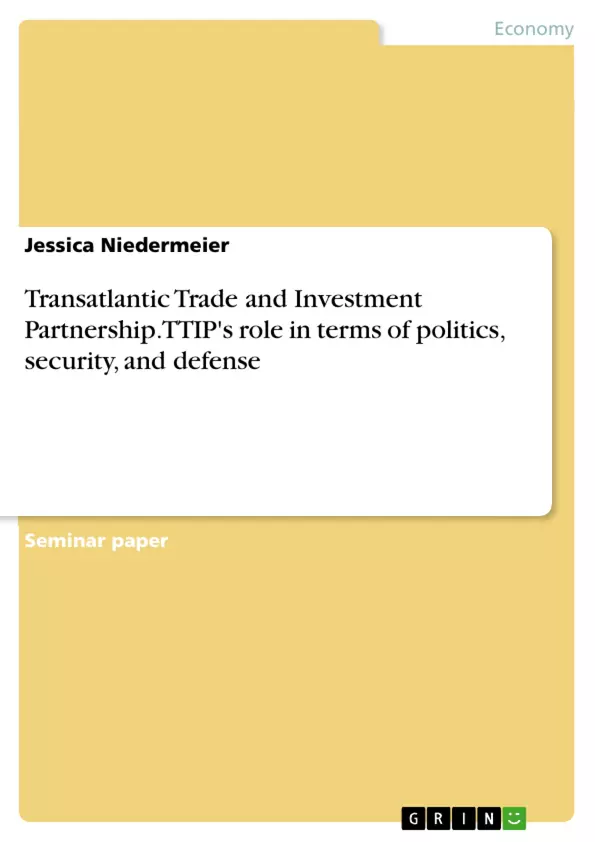What positive impact does TTIP have on policy, defense, and security?
Observing the humanitarian crisis in Venezuela, the political instabilities in African nations such as Syria, Iraq, and Libya, the war in Yemen, and the terrorism in Afghanistan caused by the Taliban shows that the world is currently facing security challenges. Above all, the Ukraine war, which began with Russia's invasion on February 24, the crisis in North Korea, and the confrontation over the Taiwan issue are of particular concern. In addition, there are other political uncertainties. According to the Council on Foreign Relations, 70.8 million people are displaced due to the war. This migration crisis is an issue that the EU and the US, especially, have to deal with. Furthermore, the global Covid-19 pandemic has been on the agenda since 2020. Accordingly, both military and health risks exist.
This chapter focuses on the transatlantic trade and investment partnership "TTIP" and its impact on security. The TTIP negotiations between the EU and the USA reached a standstill at the end of 2016. Despite the possibility that the treaty would enable the two powerful economic nations to develop further and strengthen their ties. Furthermore, the agreement aimed to create up to 13 million new jobs. Nevertheless, the TTIP negotiations are gaining traction due to global circumstances. As already explained, many skeptics, such as charities, environmentalists, and NGOs, for instance, strongly criticize the agreement. There have also been some large-scale demonstrations in European countries. Nevertheless, TTIP also has benefits, especially concerning the economy.
Inhaltsverzeichnis (Table of Contents)
- Introduction
- Policy
- Health Standards and Food Safety
- IT and Cyber-Security
- Financial Security
- Energy Security
- Military Defense
- Results
- Bibliography
Zielsetzung und Themenschwerpunkte (Objectives and Key Themes)
This research project analyzes the Transatlantic Trade and Investment Partnership (TTIP) and its potential impact on security, focusing on the areas of politics, defense, and security. The research aims to critically evaluate the arguments against TTIP and identify potential benefits that have been overlooked.
- The impact of TTIP on global security in the context of current political uncertainties and global crises.
- The role of TTIP in strengthening the relationship between the EU and the US.
- The potential economic benefits of TTIP and its contribution to job creation.
- The potential impact of TTIP on areas such as health standards, food safety, IT security, and energy security.
- The potential for TTIP to contribute to a more secure and stable global environment.
Zusammenfassung der Kapitel (Chapter Summaries)
- Introduction: This chapter introduces the context of the research, highlighting global security challenges and the importance of the transatlantic relationship. It introduces TTIP and the potential for the agreement to strengthen economic ties between the EU and the US.
- Policy: This chapter explores the potential impact of TTIP on policy, specifically looking at the impact on health standards and food safety, IT and cyber-security, financial security, energy security, and military defense.
Schlüsselwörter (Keywords)
The primary keywords and focus topics of the text are: Transatlantic Trade and Investment Partnership (TTIP), global security, policy, defense, health standards, food safety, IT security, financial security, energy security, military defense, economic benefits, job creation, political uncertainties, global crises.
- Quote paper
- Jessica Niedermeier (Author), 2023, Transatlantic Trade and Investment Partnership. TTIP's role in terms of politics, security, and defense, Munich, GRIN Verlag, https://www.grin.com/document/1443225



